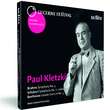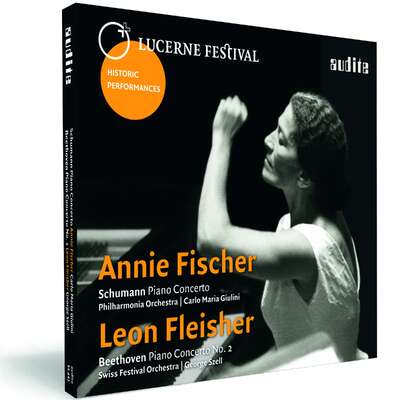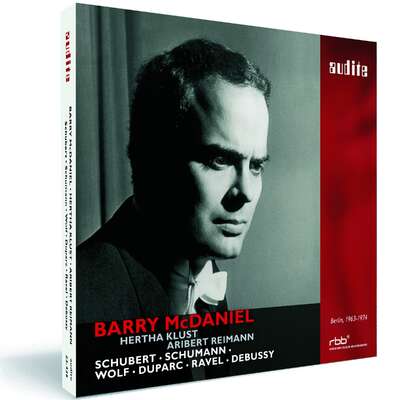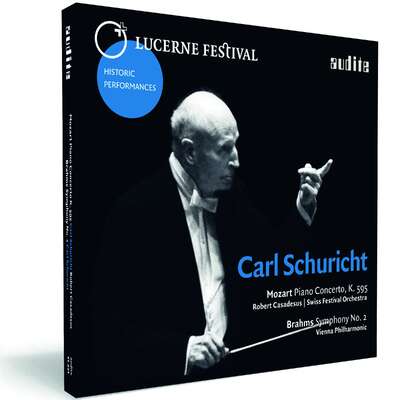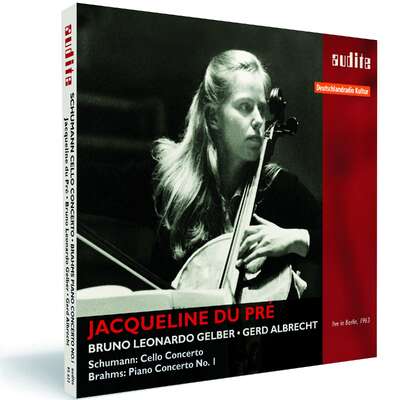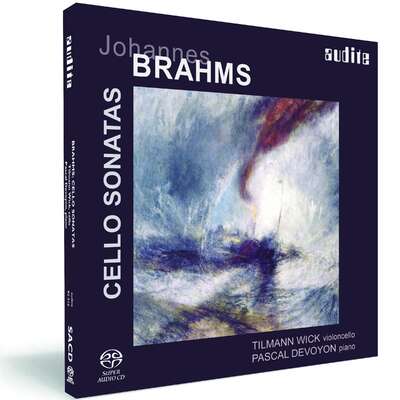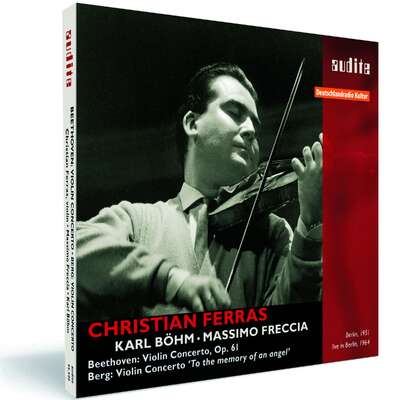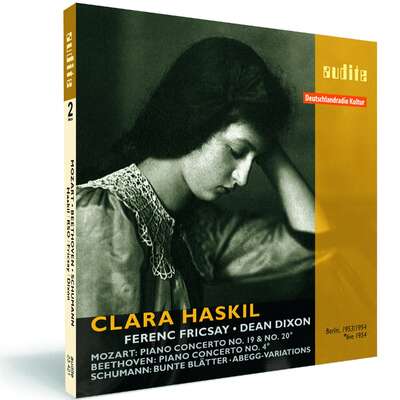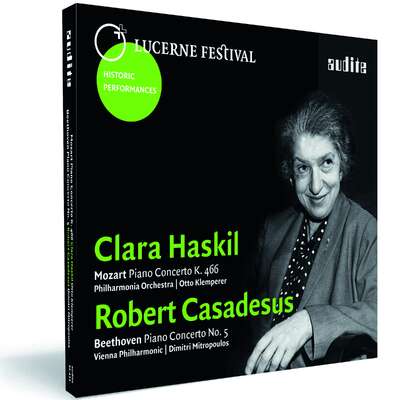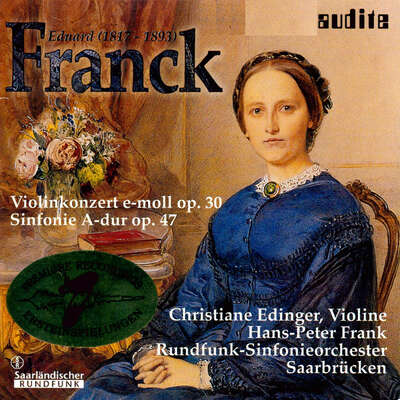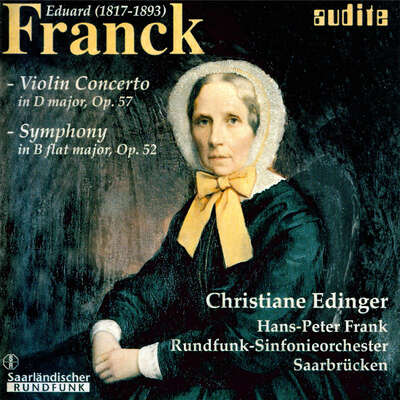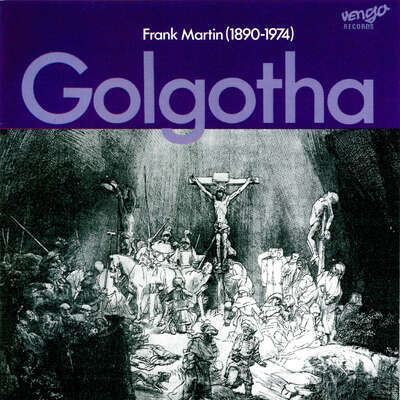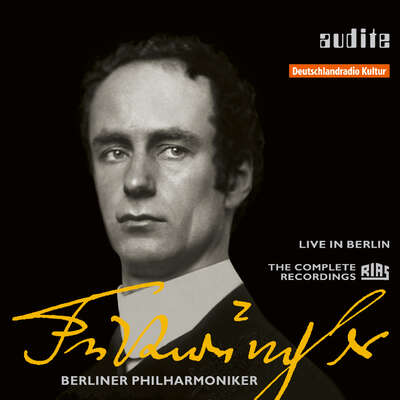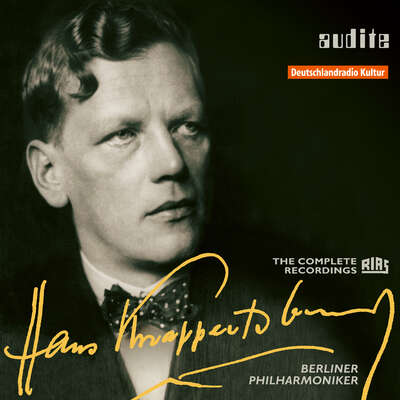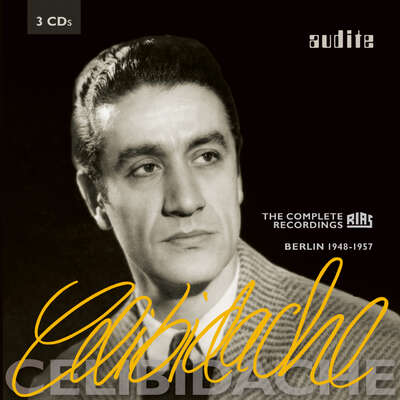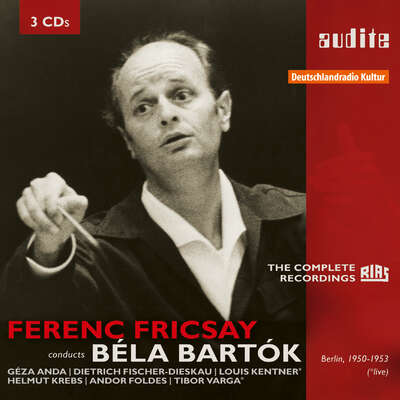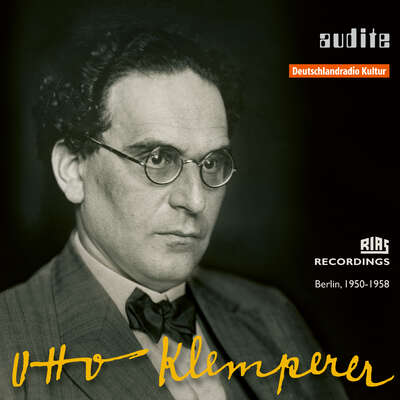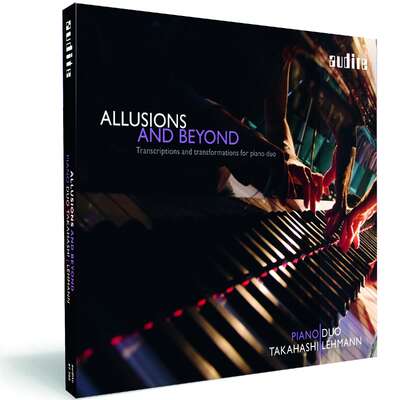
Auto-Rip
A rediscovery of a conductor who nowadays is considered an insider’s tip: having fled fascism and Stalinism, Paul Kletzki arrived in Switzerland in 1939 and advanced to become one of the leading conductors after the Second World War. This Lucerne live recording shows Kletzki at the height of his art: exciting interpretations, characterised by expressiveness and a stupendous sense of musical architecture.more
A rediscovery of a conductor who nowadays is considered an insider’s tip: having fled fascism and Stalinism, Paul Kletzki arrived in Switzerland in 1939 and advanced to become one of the leading conductors after the Second World War. This Lucerne live recording shows Kletzki at the height of his art: exciting interpretations, characterised by expressiveness and a stupendous sense of musical architecture.
Details
|
Paul Kletzki conducts Brahms, Schubert & Beethoven
LUCERNE FESTIVAL Historic Performances, Vol. 9 |
|
| article number: | 95.642 |
|---|---|
| EAN barcode: | 4022143956422 |
| price group: | BCB |
| release date: | 20. May 2016 |
| total time: | 76 min. |
Bonus Material
Informationen
A rediscovery of a master: a leading podiumstar during his lifetime, Paul Kletzki, born Paweł Kleckiin the Polish city of Łódź on 21 March 1900, nowadays is considered an insider's tip amongconnoisseurs. Volume 9 in the LUCERNEFESTIVAL Historic Performances series presents a live recording from thesummer of 1946 as a first release. It shows Kletzki at the height of his art:on the podium of the Swiss Festival Orchestra he realises excitinginterpretations of Brahms' Fourth Symphony, Schubert's Unfinished and Beethoven's LeonoreOverture No 3 - expressive and with a stupendous sense of musicalarchitecture.
Paul Kletzki fled as many as threetotalitarian regimes - initially Nazi Germany, where he had established himselfas a composer and conductor since the 1920s, and where Wilhelm Furtwängler hadchampioned him; later on, Stalin's Soviet Union; and finally fascist Italy -before settling in Switzerland in 1939. Here, he became a regular guest at theInternationale Musikfestwochen Luzern, today's LUCERNE FESTIVAL, and began hisinternational career which led him to work with all the important orchestras,whilst he also became chief conductor of the symphony orchestras at Liverpool,Dallas, Bern, as well (as Ernest Ansermet's successor) as the Orchestre de laSuisse Romande. This live recording documents a charity concert which Kletzkiconducted following studio recordings made in Lucerne for EMI: the first ever recordingmade by a Swiss orchestra for the international record market. The Neue Zürcher Zeitung wrote aboutKletzki's performance that the "works [...] were interpreted with a brilliantperfection of intellectual excitement and spiritual fulfilment as it is to beexperienced only extremely rarely".
This live recording from 1946 is one of theoldest recordings in the audite catalogue. It is based on the originalrecording which was made using acetate discs, each with a duration of c.4minutes. Despite their old age and the particular technical challengespresented by the remastering process, Kletzki's impressive dynamics have beenfully preserved.
In cooperation with audite, LUCERNEFESTIVAL presents outstanding concert recordings of artists who have shaped thefestival throughout its history. The aim of this CD edition is to rediscovertreasures - most of which have not been released previously - from the firstsix decades of the festival, which was founded in 1938 with a special galaconcert conducted by Arturo Toscanini. These recordings have been madeavailable by the archives of SRF Swiss Radio and Television, which hasbroadcast the Lucerne concerts from the outset. Carefully re-mastered andsupplemented with photos and materials from the LUCERNE FESTIVAL archive, theyrepresent a sonic history of the festival.
Reviews
http://hi-res.pw | April 28, 2018 | April 28, 2018 | source: http://hi-res.pw...
Despite their old age and the particular technical challenges presented by the remastering process, Kletzki’s impressive dynamics have been fully preserved. Mehr lesen
Crescendo Magazine | 28 avril 2017 | Pierre Jean Tribot | April 28, 2017 | source: http://www.cresc... Paul Kletzki à Lucerne
L’orchestre montre parfois certaines fragilités (vents !), mais la tension imposée par le chef galvanise les musiciens. En conclusion, on tient un concert d’un grand intérêt au service de la mémoire d’un chef trop oublié. Le travail de remasterisation des bandes d’origine est exceptionnel en dépit des limites techniques inhérentes à l’âge de la captation.Mehr lesen
Zuger Zeitung
| 05. Januar 2017 | Fritz Schaub | January 5, 2017 | source: http://www.zuger...
Ein Flüchtling wurde zur Schlüsselfigur
CD-DOKUMENT – Die erste Schallplatte eines Schweizer Orchesters für den internationalen Markt entstand am Lucerne Festival. Paul Kletzki wurde damals zu einer Schlüsselfigur des Schweizerischen Festspielorchesters
Schuberts Unvollendete und Beethovens dritte «Leonore-Ouvertüre», dokumentieren nicht weniger eindrücklich, auf welch hohem Niveau damals das Festspielorchester stand, auch wenn die Tonqualität deutlich historisch ist.Mehr lesen
American Record Guide | November 2016 | David Radcliffe | November 1, 2016
This is a particularly interesting broadcast concert, recorded 7 September 1946 with an ad hoc orchestra which the Vienna-bound Walter Legge had justMehr lesen
This would be all for naught if the results were not musical, but I find these highly-charged performances persuasive, particularly the Brahms symphony. Subtle they are not, but if you enjoy unfiltered, late-romantic, expressionist modernism you will find it here, captured with a thrilling dynamic range not obtainable when this mode of performance was still in vogue. One thinks of over-the-top Russian 78s—it may be that the conductor, who had been in the Soviet Union before migrating to Switzerland, was inspired by Golovanov as well as by Furtwangler (who had once played his compositions in Berlin). It must have been a great release for Paul Kletzki to be able to travel in the West after all those difficult years, but this late outburst of Nikisch-Mahler sensibility is a worthy memorial of what he left behind. The production is first-rate.
Fanfare | October 2016 | James Miller | October 1, 2016
Paul Kletzki was born in 1900 and died two weeks short of his 73rd birthday. A native of Poland, he moved to Germany in 1921 with the intention ofMehr lesen
I wonder if the concert featured the pieces in the order in which they appear on the CD; it seems to me that Beethoven and Schubert followed by Brahms would have been the likely order. These are certainly high-quality, intelligent performances with subtle tempo changes and an intelligent use of dynamics for dramatic emphasis. Interestingly, in the Passacaglia of the Brahms Fourth, he doesn’t even pretend to keep a steady tempo, letting each variation “speak for itself” with considerable success. As imposing as it may be, this performance is like a major step on the way to his superior (and two-channel) studio recording for EMI. The Schubert “Unfinished” is, if anything, even better, with the same flexible tempos and dynamic contrasts helping the music to tell its story. After these two achievements, the strong performance of the Leonore No. 3 is almost anti-climactic.
Speaking of the dynamic contrasts that Kletzki uses to such good effect, they are sabotaged to some extent by an unexpected intrusion—anything below mf is accompanied by the annoying swish of a stylus traversing the grooves of what I take to be a transcription disc. Are the performances actually from a “charity concert”? Could be, but the audience is astonishingly healthy and polite—there’s no shuffling, no coughing, and no applause whatsoever. As it happens, Kletzki made English Columbia 78s of all three works—the Beethoven and Schubert with the Philharmonia Orchestra and the Brahms with the Lucerne Festival Orchestra (!). In addition, I perceived what seemed to be a side break in the Brahms Symphony. All of these coincidences (?) may be explicable but I thought I should mention them. My speculations do not diminish my respect for the performances themselves, but they do have me wondering.
Audio Video Club of Atlanta | September 2016 | Phil Muse | September 1, 2016 | source: https://s3.amazo...
The hand of the master is equally evident in Brahms’ Fourth, where he shapes the contours of the music to perfection, emphasizing both the architectural strength and the expressive beauty of this work. Mehr lesen
www.musicweb-international.com | Wednesday August 24th | Jonathan Woolf | August 24, 2016 | source: http://www.music...
After the end of the Second World War, at a time when EMI’s Walter Legge was re-establishing continental European contacts, Paul Kletzki became aMehr lesen
His later Czech Philharmonic LP may be more familiar than the 78 but few Kletzki admirers would want to be without the ancillary pleasures of this live performance, notwithstanding its very close approximation to the 78 set. It’s a performance of architectural surety and expressive balance. Kletzki was not one for quirks or peculiarities and he invariably saw straight to the heart of things. Thus this reading is flexible but never rhythmically flabby, and whilst the string choirs don’t sing out, this may be as much to do with the rather constricted sound as anything else. The horns certainly sound on fine form – albeit there is a touch of distortion, especially noticeable in the second movement – and though the Lucerne winds can be a touch pinched tonally they are well balanced and generally personable-sounding. The Andante is nobly conceived, its narrative finely detailed, the scherzo propulsive. With a powerfully but musically convincing finale all that this really needs is slightly better engineering and a more open top, the better to capture the hall ambience. Otherwise, it reveals Kletzki, yet again, as a musician lacking grandiose pretentions but possessing the firmest architectural strengths.
Much the same goes for Schubert’s Unfinished Symphony which, whilst Kletzki jettisons the first movement repeat, is notably well-phrased and conceived in dramatic terms. There’s swish audible throughout but principally during the second movement where it becomes quite intrusive. I suspect that attempts to limit this have also taken some of the higher frequencies with it which accounts for the somewhat cramped sound. Nevertheless, the performance itself is deeply impressive, as is the intensity that Kletzki locates in the Leonore Overture No.3. There’s some chuffing here, too, and overload hints in forte outbursts.
These relatively minor distractions apart, Audite has done well to restore this concert. Documentation is first class.
Gramophone | August 2016 | Rob Cowan | August 1, 2016 Kletzki in Lucerne
An interesting Paul Kletzki release from Audite reproduces a 1946 concert performance of an interpretation that may be familiar to some readers as aMehr lesen
Stereoplay | 07|2016 | Attila Csampai | July 1, 2016 Brahms unter Strom
Es ist eine der spannendsten und zwingendsten Aufführungen der Vierten von Brahms, die ich je gehört habe, noch geballter und stringenter als die berühmten Referenzen von Klemperer und Toscanini. Vor allem in den beiden Ecksätzen kombiniert Kletzki strukturelle Dichte und emotionales Feuer zu gebündelten Energieschüben, die das späte Opus fast als Fanal jugendlicher Leidenschaft und so gar nicht als abgeklärtes Alterswerk erscheinen lassen.Mehr lesen
www.pizzicato.lu | 05/06/2016 | Remy Franck | June 5, 2016 Spontanes Dirigat von Paul Kletzki
Der Schweizer Dirigent Paul Kletzki (1900-1973), ehemaliger Chefdirigent in Liverpool, Dallas, Bern und beim ‘Orchestre de la Suisse Romande’,Mehr lesen
www.concertonet.com | 05/15/2016 | Simon Corley | May 15, 2016 Chefs oubliés: Paul Kletzki et Antonio Pedrotti
De récentes publications remettent à l’honneur deux chefs nés auMehr lesen
